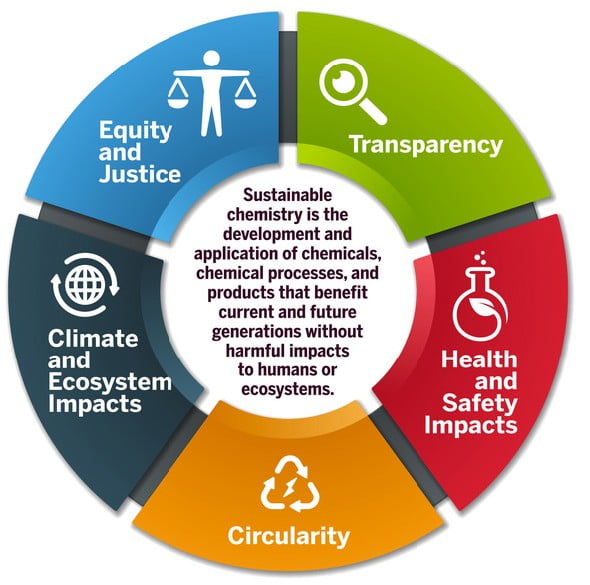
Beyond Benign ECOSChem actionable definition and criteria for Sustainable Chemistry calls for “without hazards”, to cover the chemical itself, input components, emissions and breakdown products. The ECOSChem Committee, convened by the University of Massachusetts’ Lowell Center for Sustainable Production and green chemistry educating organisation Beyond Benign, brought together 20 scientists, international organisations, NGOs, business and investors worldwide in 2022-2023 and published an eleven page conclusions report in February 2023. An overall definition is proposed as “the development and application of chemicals, chemical processes, and products that benefit current and future generations without harmful impacts to humans or ecosystems”. This definition is detailed in 17 criteria covering equity and justice, transparency, health and safety impacts, climate and ecosystem impacts, circularity and the ability to be recycled and reused. Regarding Health and Safety, the proposed criteria specify “A sustainable chemical, material, product … will be without hazards to people and ecosystems, including hazardous components, emissions, and toxic by-products and breakdown products and not result in releases, including releases of by-products or breakdown products, that persist or bioaccumulate.”
“Sustainable chemistry experts create blueprint for safer future”, 27 February 2023 https://www.eurekalert.org/news-releases/981021
ECOSChem – Sustainable Chemistry Catalyst website with access to Report, preparatory document, etc https://www.sustainablechemistrycatalyst.org/projects
Image: The five pillars of sustainable chemistry, Expert Committee on Sustainable Chemistry, Lowell Center for Sustainable Production and Beyond Benign.